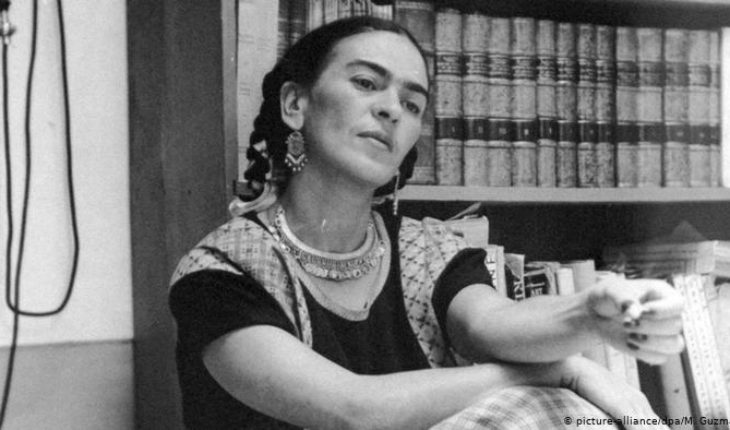The news caused a sensation around the world: experts from Mexico’s National Fonoteca would have found a g ration, with the supposed voice of Frida Kahlo. A (possible) sensation, because it would be the first and so far only recording in which you can hear the voice of Latin America’s most famous artist.
But now, doubts multiply: family members and alumni deny that the recording is Kahlo’s voice. “As far as the Kahlo family knows, there are no recordings of Frida’s voice,” the relatives said in a statement. Kahlo’s alumni Arturo Estrada Hernández and Guillermo Monroy Becerril also doubt that Kahlo’s voice will be heard on the recording. Monroy told Spanish news agency Efe that he and his friends had long lived with Kahlo at Casa Azul, Kahlo’s home in Mexico City. “I don’t recognize his voice,” Monroy says. “When I first met her, I realized that she was a woman with a very sweet and cheerful voice. Frida’s true voice was very lively, charming and cheerful. She was not serious, neither tender nor fragile. He was a very clear person,” he adds.
The voice of an actress?
The two-minute audio comes from a pilot program, “The Baccalaureate”, recorded between 1953 and 1955. This includes a short biography of Kahlo’s painter and husband, Diego Rivera.A female voice reads Kahlo’s essay, “Portrait of Diego”, which appeared in a catalogue of an exhibition in 1949.
In the course of the debate on the recording, Mexican actress Amparo Garrido said: “I’ve done a lot of things for ‘El Bachiller’. I’m pretty sure I recorded that too,” Garrido told Radio Formula. The actress, who starred in “Blancanieves” (in the Spanish version of the Disney film), dated the recording as well as the experts of the Fonotequa Nacional between 1953 and 1954.
Ampara Garrido’s son, Ismael, told Radio Formula, that he acknowledged that the voice of the audio is that of his mother. She also doubts that the artist’s state of health allowed her to make such a recording: “Frida Kahlo was born in 1907 and died in 1954. That is, he made the recording at the age of 65. It has to be the year he died.”
Examining the recording
As doubts grow, the experts of the National Fonoteca continue to examine whether the voice of the recording belongs to Frida Kahlo. A total of 1,300 tapes of the “The Baccalaureate” program will also be digitized and catalogued to see if Kahlo’s voice can be heard in one of them. “The more data and reference material available, the more forceful the coroner’s final verdict,” explains Martin Steinebach, head of the Media Security department and IT Forensics at the Fraunhofer Institute for Technology Security at the Information.
Steinebach explains to DW how experts investigate recordings like Kahlo’s so-called: “There’s biographical information about Frida Kahlo: Where did she grow up? Who were his parents? Could it be the voice of a woman of that age? Can there be a regional accent? It compares whether the use of words is typical of the environment.” In addition, he would digitize the material and check with which device the voice was recorded. He would make recordings with the same device and then compare the fluctuations between Kahlo’s alleged material and his own. That’s what we call ballistics. The term is used when a bullet is assigned to a certain weapon. The first step is to check the relationship between the device and the medium,” he says.
There is no absolute security
Even after having thoroughly analyzed the material, it cannot be fully confirmed whether it is Frida Kahlo’s voice. Especially since there are no references to Frida Kahlo’s voice so far, says Martin Steinebach. “But it is possible to check, without references, whether the way of speaking and the voice match the person.”
Frida is now a myth, also because she fought as an artist to make a name for herself in the world of painting, an area then of male dominance. He painted 143 works, 55 of them, self-portraits. He died in 1954 at the age of 47.
translated from Spanish: Frida Kahlo Audio: Increasingly Doubts About Its Authenticity
June 24, 2019 |





